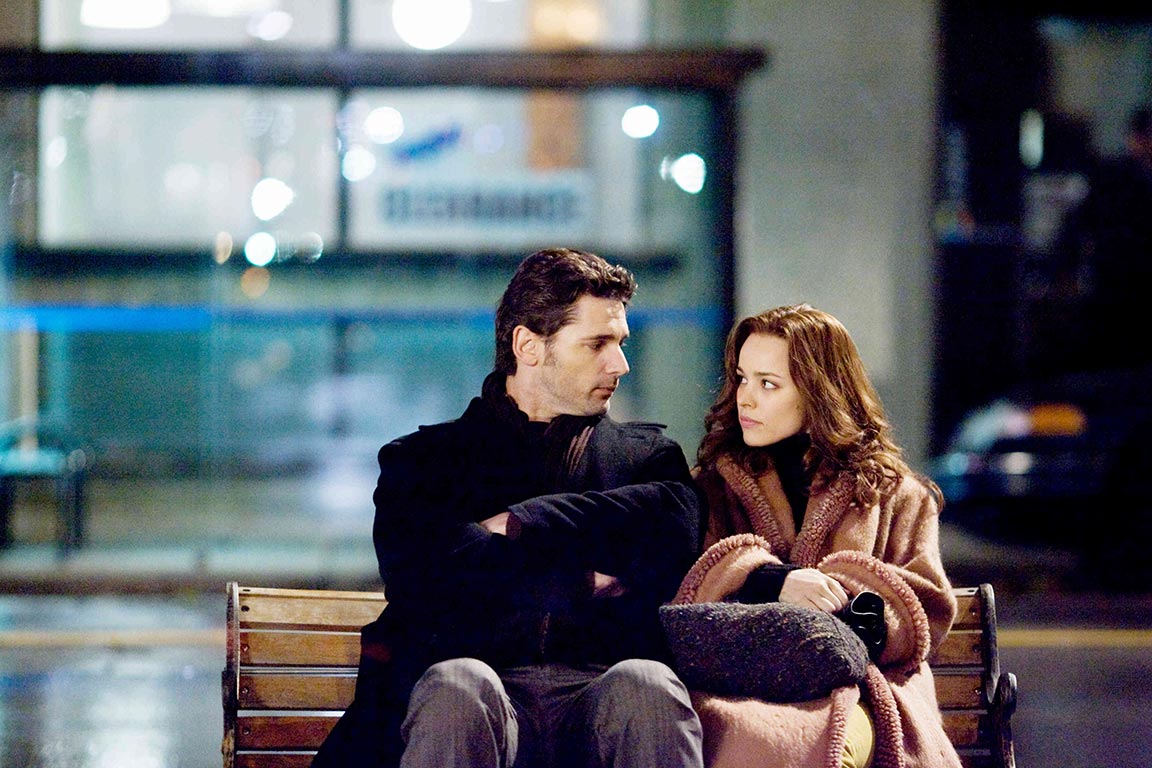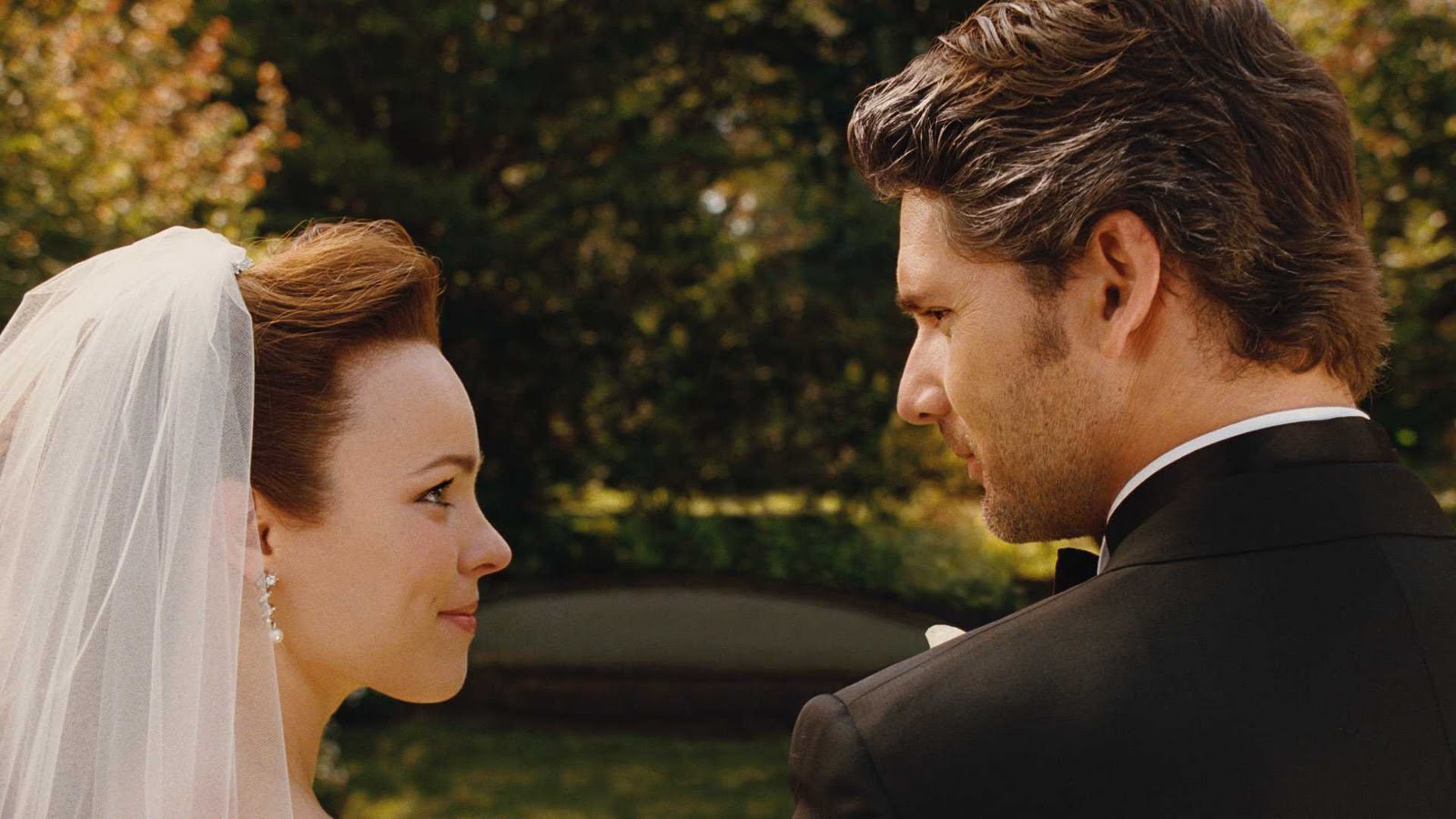
RETRO MOVIE REVIEW: The Time Traveler’s Wife (2009)
With the arrival of a new adaptation of The Time Traveler’s Wife coming soon to HBO Max, now seems like a good time to revisit the original movie based on Aubrey Niffenegger’s novel. It’s a book that gained popularity among some notable names, including Steven Spielberg, David Fincher and especially Steven Moffat of Doctor Who fame (who ended up producing the HBO Max version). However, the film of the movie ended up being produced by Plan B Entertainment, which was Brad Pitt and Jennifer Aniston’s production company at the time.
The story presented by both the novel and the film centers around Henry DeTamble (played by Eric Bana), who is born with the natural ability to randomly travel through time and space. Henry has no ability to control this power, which at certain times works to his advantage (such as surviving an accident that kills his mother) and at other times interferes with his life and his relationships. The most important person in Henry’s life is the woman who becomes his wife, Clare Abshire (played by Rachel McAdams), who has to cope with his comings and goings through time. Although this film is framed as a love story, and to a fair extent it is, The Time Traveler’s Wife is about a man’s difficult condition and how it affects the family.
One point that I appreciate about the film is how it establishes very clear rules to its time travel, and everything we see is a logical consequence of how time travel works in this setting. Henry’s power is a genetic disorder, and it functions in a clearly defined way—he cannot bring his clothes with him, he only jumps into certain time periods, and he cannot alter events in his past. Because of this, Henry lives his life out of its proper order, with his whole life taking place out of sequence. Sometimes this is done in an entertaining way, such as when Henry disappears on his wedding day, only for a future version of Henry to take his wedding vows. At other times, it creates dramatic tension, such as during Henry and Clare’s attempts to have a child. This film understands that their marriage is the beginning of their story, not the end of it, as time travel proves to be a constant strain on the couple’s relationship. As much as time travel brings them together, it also threatens to tear them apart. The ending to the story is an appropriate one, and although bittersweet and tragic, time travel means that nothing is ever truly the end.

That having been said, there are some elements to the story that are a bit concerning. Henry having known Clare as a child makes elements of the romance between them come across as quite uncomfortable. There are also strange issues of consent involved, such as Clare getting pregnant by Henry’s younger self after his older self had a vasectomy. At the same time, the older Henry goes back in time and makes advances on an 18-year-old Clare after his fight with her older self. These moments make their relationship less romantic and come across more as problematic and sometimes even toxic. The chemistry between the lead actors and the writing of the later parts of the film do smooth over some of the rough edges of the story, but there are moments where it becomes difficult to root for these people to be together, which undermines the love story.
Fortunately, the main couple works really well, which is the most important part of casting any kind of love story. I was most familiar with Eric Bana in his pop culture roles, mainly his version of Bruce Banner in Ang Lee’s Hulk. However, I think Bana delivers some of his strongest work in his role as Henry, where he’s fundamentally playing several different characters at the same time. The younger Henry who initially meets Clare is a different person than he becomes in the future, where he’s a father who suffers through some difficult times in his life. Bana does a good job of showing those transformations, and he seems physically and emotionally different at each point in his life. Bana also captures the pain of Henry’s character, especially during the later phases of his life, as the toll of a life of time travel truly weighs on his heart. Rachel McAdams does some very solid work in the role of Clare, gradually showing her change through the course of the story. She begins as a very starry-eyed romantic chasing the man of her dreams, maturing over time as she realizes how much that love really costs her. Just as Bana plays very different versions of Henry, McAdams plays very different versions of Clare while all being recognizably the same core person. The chemistry between Bana and McAdams works, with romantically charged moments in the early phase of their relationship, and then a more settled and mature love by the time the story ends. That dynamic is the core of the film, and watching them grow and change into the people they become is a large part of the film’s draw.

The Time Traveler’s Wife offers a different kind of time travel story as well as a different kind of romance story. Although the romance story is not perfectly executed, the story is fascinating even during its more challenging moments. The strength of this film is in the way the time travel is thought out and in the ways that it is creatively used, and that’s an impressive feat given how difficult that ability is to write effectively. This is a movie about the struggle of a man living with a difficult condition, but it also is a story that asks if love is fated or a result of personal choices. The film version set a reasonably high bar for the new series to live up to, though not an insurmountable one, and it a film that’s worth checking out if you’re curious.
Score: 4/5
Director: Robert Schwentke
Writer: Bruce Joel Rubin (based on the novel by Aubrey Niffenegger)
Cast: Eric Bana, Rachel McAdams, Ron Livingston, Arliss Howard, Stephen Tobolowsky, Michelle Nolden
Author Profile
- Steve Sellers had been a fan of superheroes ever since Superman: The Movie. But it took the JSA, the Legion of Super-Heroes, Dragonlance, Lord of the Rings, Twilight Zone, and Chris Claremont's legendary run on the X-Men to make him a writer and a longtime fan of comics, fantasy, and science fiction. Steve is the co-creator of WHITE DRUID & MICHAEL NERO and GUARDIANS OF ELAYIM for Omen Comics, and he is also the creator of BLITZ and SHOCKWAVE for Revelation Comics (an imprint of Omen Comics).










